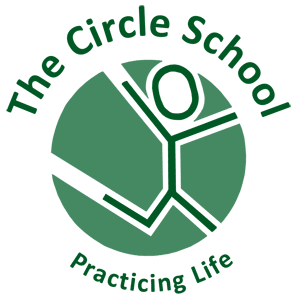Mission and Methods
In two minutesMission and Methods
MISSION: EDUCATE AND ADVOCATE
Educate for personal fulfillment and societal engagement. Advocate for the school’s methods to be widely adopted and adapted. Holding certain BELIEFS and VALUES, the school fulfills its mission by sustaining essential CONDITIONS and applying proven METHODS.
BELIEFS
-
-
- Children are born with the impulse to thrive, strive, and grow.
- Everyone is entitled to self-determination and a say in governance.
- Fellowship and community are essential to human growth and fulfillment.
-
VALUES
-
-
- Personal fulfillment and engagement in society
- Increasing knowledge, skills, and many kinds of intelligence
- Free and responsible search for truth and meaning
- Universal community, embracing all faiths and worldviews
- Liberty, justice, and mutual acceptance
-
CONDITIONS
Thirteen essential conditions are given as Ends We Seek (here) in five categories: OPPORTUNITY, GROWTH, SELF-DETERMINATION, GOVERNANCE, and OUTREACH. Examples: Students experience fellowship, common culture, collective self‑governance, and shared responsibility. Students are free of curricular coercion. Students enjoy civil liberties such as freedoms of speech, press, thought, and attention.
METHODS
Practicing life. Children and teens practice life in a self-governed school society: empowered as voters, bound by laws, challenged by choice, supported by community, and driven by nature. Immersed in opportunities and challenges of the real world scaled down, young people develop knowledge, skills, intelligence, and character, and find individually effective ways of being and doing.
Democracy. As members of the School Meeting, students and staff together govern the school, managing legislative, judicial, and executive functions. Everybody gets a vote, youngest to oldest, and anybody can run for election to positions of authority. Laws are adopted by majority vote and enforced by the judicial branch, applying due process and rule of law. A Board of Trustees preserves the school’s democratic structure, ensures student civil liberties, manages long-term interests, and sets limits of prudence and ethics on School Meeting’s governance.
Self-determination. Like adults in the world beyond school, students pursue activities of their own choosing or creation, limited by imagination and hundreds of school laws, but not by prescribed curriculum or adult demands. Self-motivation outperforms coercion in its power to educate: from the passion of self-determined adventures, character and intelligence emerge. Kids launch themselves into fulfilling lives, already knowing independence, interdependence, and self-authorship.
Community. Kids come to school and live their lives, mindful or reminded of the community around them. The opportunities and taming influences of community and society are crucial and central in human experience. Just so, bounded freedom is at the heart of the school. Community sets limits, teaches norms, satisfies needs for fellowship and belonging, reduces alienation, and provides living examples of how to see, be, and do.
Public outreach. The school strives to operate in ways that can be adopted or adapted by others in public and non-public education, serving as a model or template for replication. The school disseminates information through publications, public speaking, hosting visitors, engagement with educators, and active support for other practitioners of democratic schooling.
For more, check out Ends We Seek
Photo at top: Founders Jim Rietmulder and Beth Stone in the Meadow Campus playroom-to-be, February 2017
Photo below: Meadow Campus, August 2017
Mission
Beliefs
Values
Conditions
Methods
Keep reading to learn about “six optimizing conditions” and more!
Request a free information packet, including Practicing Life, chock full of stories, answers, and more.
Come to a public information event, if conveniently scheduled.
